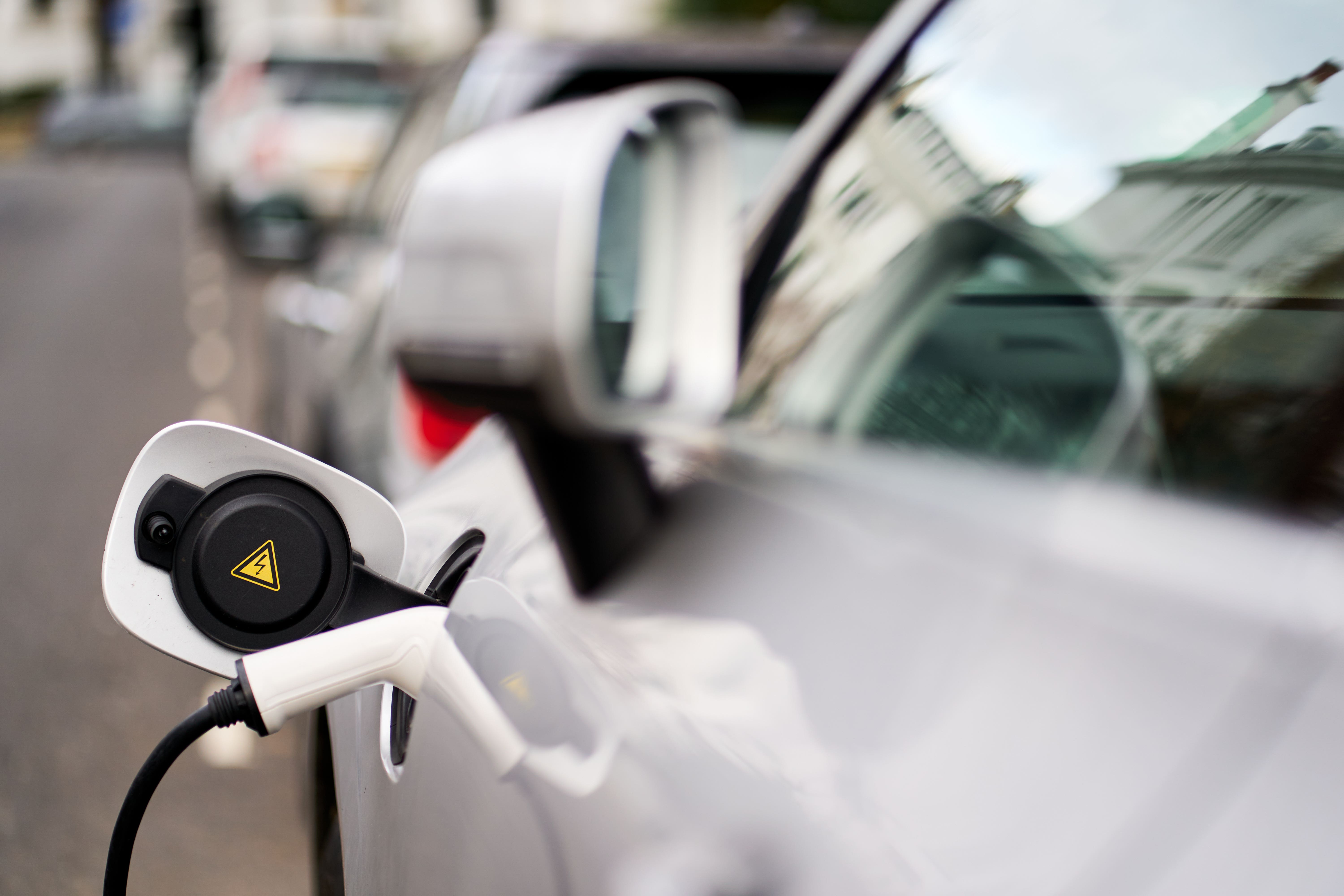Electric vehicles to lose VED exemption
Chancellor Jeremy Hunt announced that zero-emission vehicles will lose their vehicle excise duty exemption from April 2025.

Electric vehicle (EVs) owners will be hit by a new tax from April 2025.
Chancellor Jeremy Hunt announced in his autumn statement that zero-emission vehicles will lose their vehicle excise duty (VED) exemption from that date.
Owners of EVs who currently pay no VED will face an annual charge of up to £165 for cars and £290 for vans.
Mr Hunt said this will “make our motoring tax system fairer” as the Office for Budget Responsibility (OBR) has forecast that half of all new vehicles will be electric by 2025.
VED is a tax levied on UK vehicles which depends on when they were first registered and their carbon emissions.
The Treasury said the changes are estimated to raise an extra £1.6 billion by 2027/28.
AA president Edmund King said they will “slow the road to electrification”.
He went on: “This may delay the environmental benefits and stall the introduction of EVs onto the second-hand car market.
“Unfortunately, the Chancellor’s EV taxation actions will dim the incentive to switch to electric vehicles.”
Ian Plummer, director of automotive classified advertising company Auto Trader, said the new rules policy, combined with other incentives being scrapped and high energy bills, will “drive more would-be buyers away from EVs”.
He added: “An excise duty raid is deeply unhelpful and sends the wrong message if we’re to be serious about getting EVs into the mainstream.”
Mike Childs, head of policy at Friends of the Earth, said EVs have a “big part to play” in creating a “clean transport system”.
He warned that the announcement will “do little to persuade people to choose greener cars”.
We predict fuel duty revenue from cars could drop by £5 billion a year by as early as 2028
New pure electric cars registered from April 1 2025 will also lose their exemption from having to pay an extra £355 per year if their price is more than £40,000.
Mike Hawes, chief executive of the Society of Motor Manufacturers and Traders (SMMT), described this as “the sting in the tail”, claiming it will “unduly penalise” people who buy electric cars, which generally cost more than conventionally-fuelled models.
Sales of new petrol and diesel cars and vans in the UK will be banned from 2030.
Latest SMMT figures show the number of new pure electric cars registered during the first 10 months of the year was 38.4% more than in the same period in 2021.
Steve Gooding, director of the RAC Foundation, said it was “no surprise” that EVs have lost their VED exemption as “manufacturers are still struggling to meet the demand” amid supply shortages.
He claimed the Treasury faces a “bigger tax question” of what to do about the decline in fuel duty income as more motorists switch from petrol and diesel vehicles.
“We predict fuel duty revenue from cars could drop by £5 billion a year by as early as 2028,” he said.
Mr Hunt also announced that company car tax rates will increase by one percentage point for three years from 2025.
Bookmark popover
Removed from bookmarks